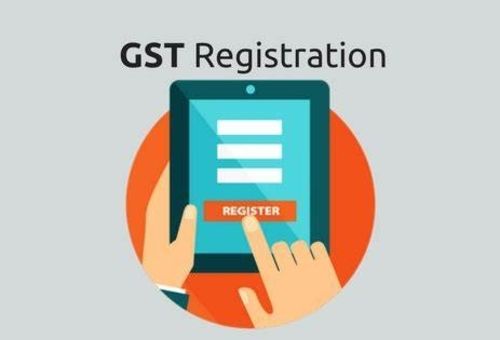Optimize Your Savings with the most effective GST Registration Services in Singapore
Wiki Article
From Beginning to End Up: The Ultimate Roadmap to GST Enrollment for Businesses Looking For Financial Security
Browsing the complexities of Product and Solutions Tax (GST) registration is an important step for services pursuing financial security. From recognizing the fundamental principles of GST to following post-registration guidelines, the procedure can seem discouraging in the beginning glimpse. Damaging down the roadmap into manageable actions can enhance the enrollment trip for services looking to boost their financial standing. Let's explore the essential parts that compose this best roadmap and uncover how each phase adds to laying a strong foundation for financial success.Recognizing GST Fundamentals
Diving right into the basic principles of Goods and Services Tax (GST) is essential for getting a comprehensive understanding of its ramifications on businesses and the economic climate. Input Tax Credit Rating (ITC) is a substantial feature of GST, enabling organizations to assert debt for taxes paid on inputs, decreasing the total tax obligation problem. Comprehending the basics of GST is critical for businesses to abide with tax laws, handle their financial resources effectively, and add to the country's economic growth by taking part in a clear tax obligation system.Qualification Standards for Enrollment
As of the existing guidelines, the threshold limitation for GST registration is a yearly aggregate turnover of 40 lakhs for companies operating within a state, other than for special category states where the restriction is 20 lakhs. In addition, particular businesses are called for to sign up for GST irrespective of their turnover, such as interstate providers, informal taxed persons, and services accountable to pay tax under the reverse cost mechanism. It is vital for companies to thoroughly evaluate their turnover and purchase types to determine their GST registration commitments precisely.Documents Required for Enrollment
Having actually fulfilled the qualification requirements for GST registration, businesses should currently ensure they have the requisite documents in place to continue with the enrollment procedure successfully. The documents required for GST registration usually include evidence of business constitution, such as collaboration deed, enrollment certification, or incorporation certificate for various kinds of you could try here companies. Furthermore, services need to give papers developing the major location of organization, such as a rental agreement or electrical power bill.Step-by-Step Registration Process
Starting the GST registration process includes a collection of organized actions to make sure a seamless and compliant enrollment for organizations. The primary step is to visit the GST website and submit the registration type with precise details of the business entity. Following this, the applicant gets a Momentary Referral Number (TRN) which is made use of to resume the application procedure if it's not finished in one go.Following, all needed records based on the list supplied by the GST portal find need to be uploaded. These documents usually include proof of company identity, address and enrollment proofs of marketers, financial statements, and business entity's PAN card.

Post-Registration Conformity Standards
.jpg)
Conclusion
In conclusion, services seeking financial stability has to comprehend the fundamentals of GST, meet qualification criteria, collect needed files, comply with the detailed enrollment process, and comply with post-registration standards - Best GST registration services in Singapore. By adhering to these steps, organizations can make sure conformity with tax regulations and keep economic security over timeAdditionally, specific businesses are called for to register for GST regardless of their turnover, such as interstate providers, casual taxed individuals, and businesses accountable to pay tax obligation under the reverse cost device.Having met the qualification requirements for GST enrollment, services must now guarantee they have the requisite files in place to continue with the enrollment procedure successfully. The papers required for GST enrollment usually include evidence of company constitution, such as collaboration act, registration certificate, or consolidation certificate for various kinds of services. Additionally, organizations require to offer files establishing the primary place of organization, such as a rental arrangement or power expense.Starting the GST registration process involves a series of organized actions to make certain a certified and smooth registration more for organizations.
Report this wiki page